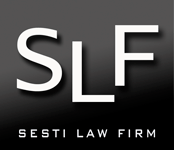What Every Contractor Should Know About New York Construction Law
- The New York Lien Law allows for the filing of private mechanic’s liens where work is performed on privately owned buildings or real property.
- The New York Lien Law allows for the filing of public improvement mechanic’s liens where work is performed on publically owned buildings or real property.
- A mechanic’s lien filed against private property must be filed within 8 months from the last date of the furnishing of the labor and/or materials (4 months if a single-family home).
- A mechanic’s lien filed against the monies due or to become due a contractor on a public project must be filed within 30 days from the date of completion and acceptance of the project by the public agency/owner.
- “Materials” for both private and public liens may include the reasonable rental value for the period of actual use of machinery, tools or equipment, or compressed gases for welding or cutting, and the value of fuel and lubricants consumed by machinery operating on, or by motor vehicles owned, operated or controlled by the owner, or a contractor or subcontractor while engaged exclusively in the transportation of materials to or from the improvement for the purposes thereof.
- “Materials” for both private and public liens may also include materials actually manufactured for but not delivered to the real property or public improvement project.
- Both private and public mechanic’s liens must be extended within 1 year of filing; otherwise they will expire.
- To bond off either a private or public mechanic’s lien, the bond amount must be 110% of the lien amount.
- Most labor and material payment bonds have strict notice provisions that must be complied with as a precondition to suit.
- Most New York public agencies have strict notice of claim requirements that must be complied with as a precondition to suit.
- New York has a “Prompt Payment Act.”
- The New York Mechanic’s Lien Law does not apply to Federal Government projects.
- On Federal Government projects, labor and material suppliers are protected by the “Miller Act,” which involves a payment bond claim.
